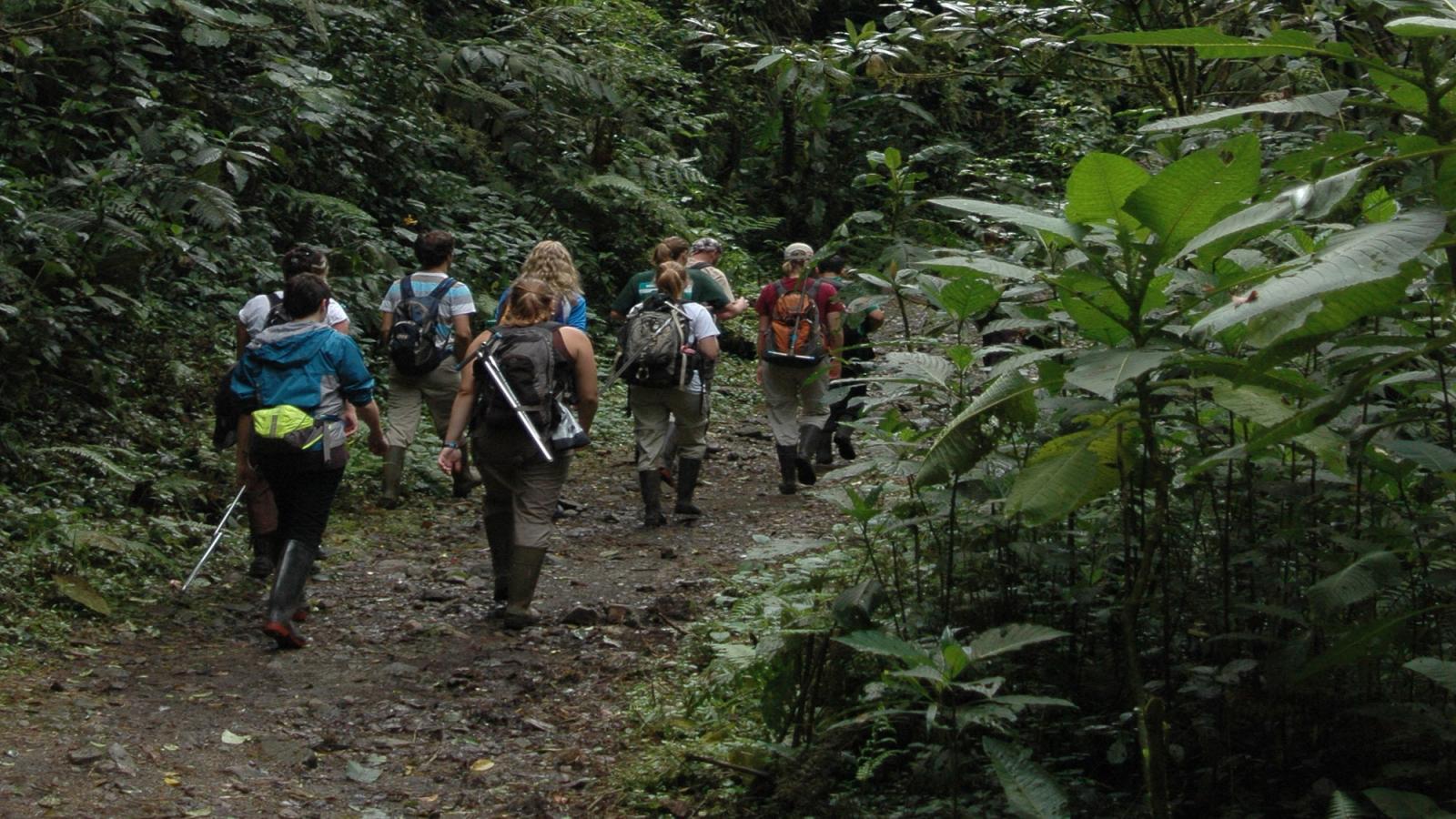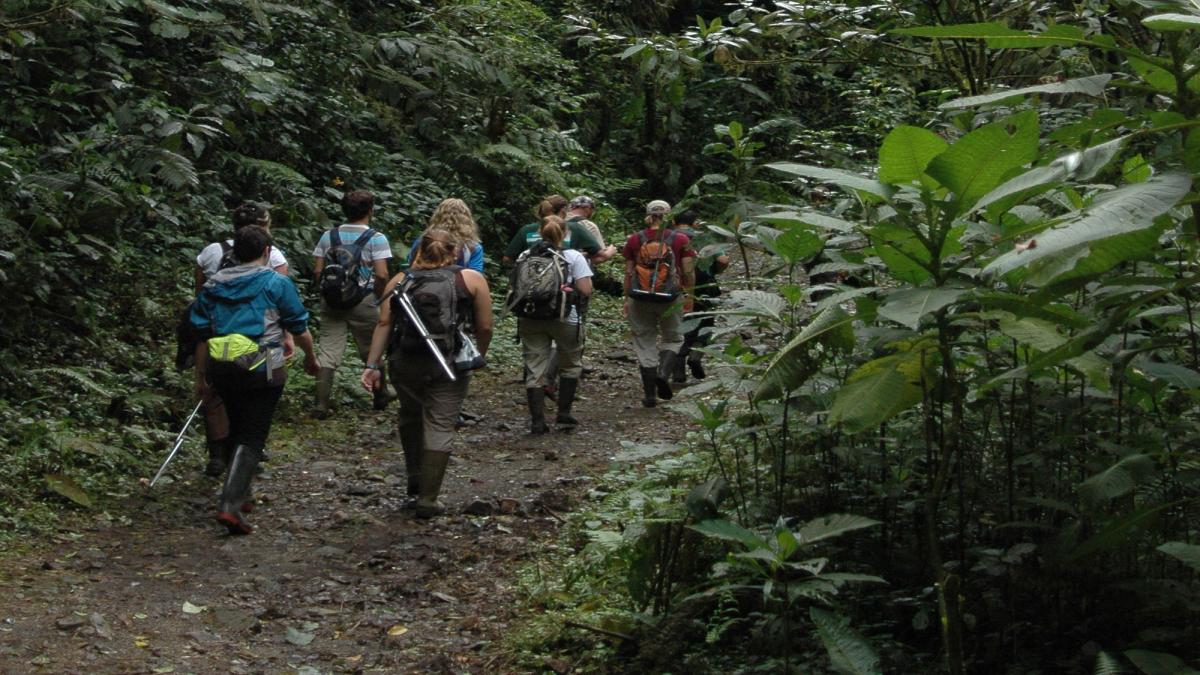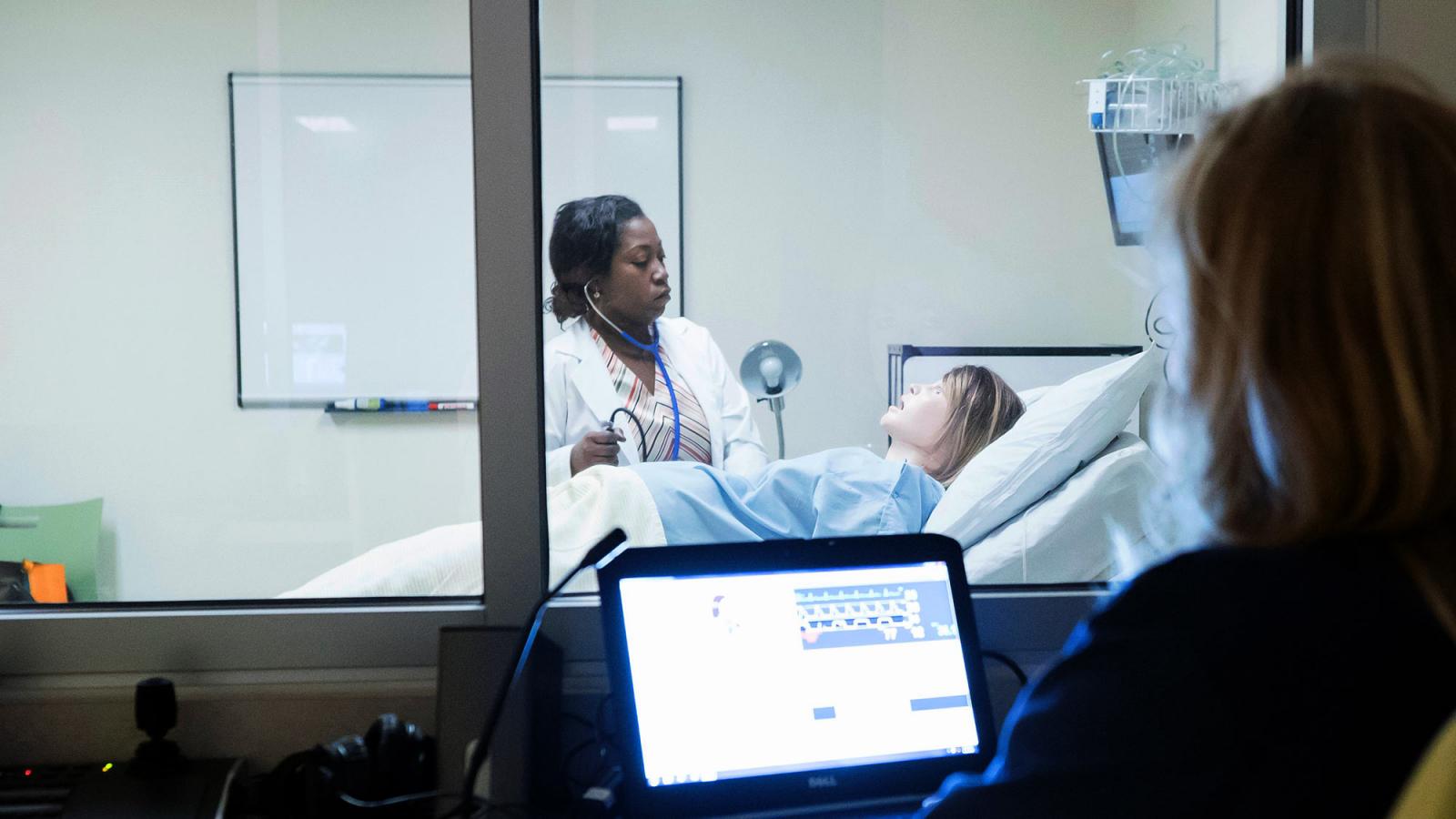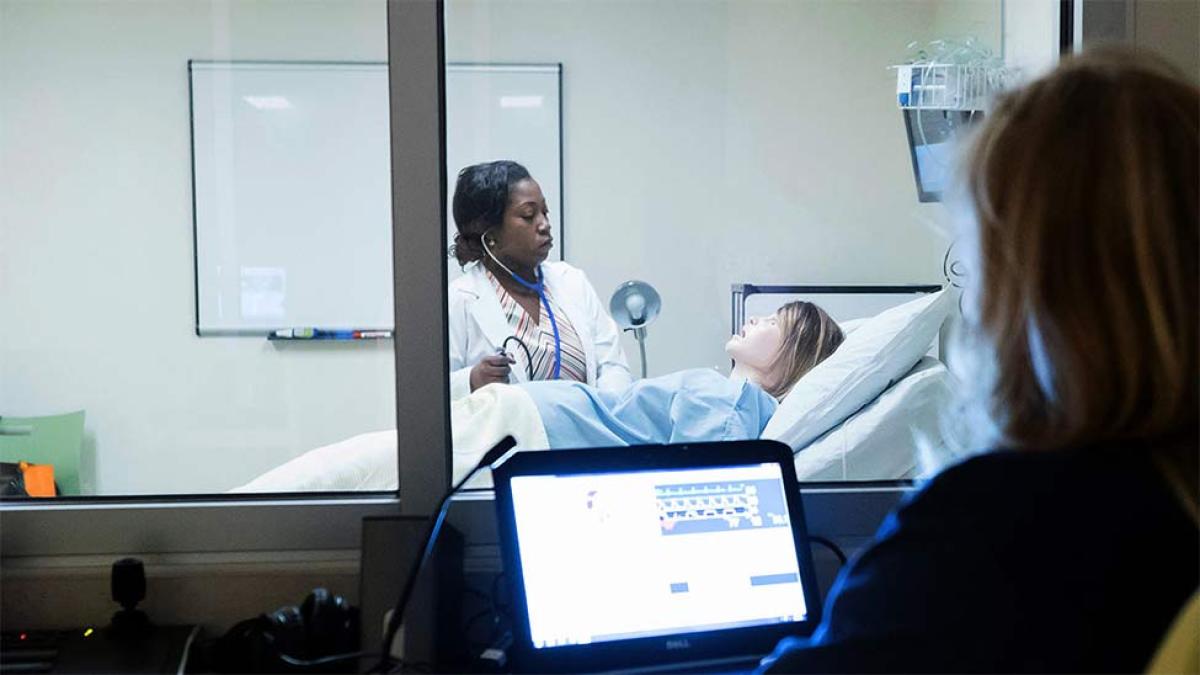The World Below the Ground
Alongside student scientists, Dyson Professor of Biology Bill Eaton is conducting invaluable research in Costa Rica—helping the world better understand how soil ecology impacts short- and long-term environmental health.


For Dyson Professor Bill Eaton, PhD, the classroom is truly mother earth.
As a tropical soil microbial ecologist, Eaton has been studying how climate change and human land management impact soil ecosystems for over two decades. Currently, Eaton is in Costa Rica making valuable contributions to this ever-growing, ever-important field.
“In respect to the world below the ground, for a long time, there was very little known in ecology about the connections between the microbial world and the carbon and nitrogen cycles,” said Eaton. “Microbial ecology is now just entering into its golden age as a result of new technologies allowing for the identification of microbial species based simply on sequencing of environmental DNA samples, rather than the need to grow the microbes in culture.”
What exactly is microbial ecology? The emerging field refers to the study of microscopic organisms, and their interaction with each other and their environment. While we may often think of soil as simply dirt, the innumerable complexities of that dirt are only beginning to be understood; namely, how changes in soil composition and carbon and nitrogen cycles can determine short-and long-term environmental health.
As Eaton notes, much of the advancements in this field can be credited to advancements in DNA technology.
“The DNA technology has become so advanced, we’ll take soil samples in different areas, extract DNA, send it to get processed, get 55,000 lines on an excel spreadsheet each representing a bacterial species or 20,000 lines representing fungal species,” said Eaton.
“The DNA technology has become so advanced, we’ll take soil samples in different areas, extract DNA, send it to get processed, get 55,000 lines on an excel spreadsheet each representing a bacterial species or 20,000 lines representing fungal species,” said Eaton. “Most of these microbes are likely not culturable, and in the past would not have been identified. This has allowed ecologists to ask really interesting questions with respect to changing microbial diversity and functional groups, and the use of complex organic carbon to produce more biomass as opposed to CO2 release—which occurs with the break down of simple compounds.”
Tropical soil environments, as Eaton describes, are arguably even more important to study, because of their critical importance in global nutrient cycling. Thus, he has made it his mission to investigate these ecosystems further; with the aim of better understanding how tropical soils are affected by human and nature-induced disturbances, and how different restoration practices can aid ecosystem recovery.
In the past two years alone, Eaton has published five different studies across a number of different academic journals. One study, which Eaton published in PLoS One with the assistance of a number of Pace student-researchers, looks at the impact of Hurricane Otto—a Category 3 hurricane that hit Costa Rica in November 2016—and how soil and fungal communities might change due to a drastic weather event.
Primary Forest Impact from Hurricane Otto
This study was in fact, one of the first of its kind—something Eaton credits to happening by chance.
“The main reason why no one has done a before and after study impacts of hurricanes on soils is that you can’t predict where one is going to hit. You have to have plots in a forest before it hits; and you have to study after. I happened to have plots in three different types of forests in the Northern Zone of Costa Rica that had been studied before Hurricane Otto hit, and have been studied since then.”
“There is an academic maturation, but also a human maturation experience. Students come down, and they come back changed. You can’t spend a month here and not have different perspective of the world.”
Though his research acumen and career experiences have made him uniquely qualified to make considerable academic contributions to a field that is becoming more salient by the day, Eaton also has become a mentor to students. By working with students in Costa Rica, Eaton has helped train a generation of future biologists—his rule is that he treats students as “scientists first”—and has seen students mature and grow substantially from simply spending time in Central America.
“There is an academic maturation, but also a human maturation experience. Students come down, and they come back changed. You can’t spend a month here and not have different perspective of the world.”
Bustle featured Dyson Professor Leora Trub in “Am I Texting My Partner Too Much, & Other Virtual Worries”
According to psychotherapist Gin Lalli, who spoke to the Guardian last summer, successful relationships are all about adapting. Couples who stayed together through the pandemic “tend[ed] to have good communication and an understanding of each other, and their vision of their future together is more aligned,” she said. It echoes previous findings, like in 2018, when Pace University’s Leora Trub found that couples with similar texting habits reported greater relationship satisfaction.
WCA Business Intel featured Pace University’s College of Health Professions in “Latest News from WCA”
Pace University’s College of Health Professions has received a nearly $2 million federal grant to increase opportunities and retention for historically underrepresented minorities in the field of nursing. The prestigious Nursing Workforce Diversity grant is funded through the U.S. Health Resources and Services Administration (HRSA) and is designed to increase educational opportunities and retention rates for first generation college students from underrepresented ethnic and racial minority groups, notably African American and Hispanic students pursuing a career in nursing.


Infobae featured Pace Student Shehab Gharib in “Laurent Simons, entre el prodigio de graduarse en Física a los 11 años y la alerta de una universidad: “Es demasiada presión”
Shahab probablemente se graduará con una licenciatura en unos dos años, a la edad de 15 años de la Universidad de Pace de Nueva York.
New York Post featured Pace University professor Elodie Silberstein in “NYC public libraries to finally reopen in three boroughs”
Pace University professor Elodie Silberstein was at the library doing research for a book.
MyCentralJersey.com featured Pace University in “In-state universities gain favor with NJ students | College Connection”
The most popular colleges, along with the number attending, from ... Pace University, Johnson & Wales University, Quinnipiac University, West ...
Bloomberg featured Haub Law Professor Bennett Gershman in “Trump Organization Case Is DA's Legacy After Early Missteps”
The Thursday indictment is Vance's “crowning achievement,” said Bennett Gershman, a law professor at Pace University in White Plains, New York.
ABC News featured Haub Law Professor Bennett Gershman in “Trump Organisation and financial chief charged in a tax-related investigation”
Guest: Bennett Gershman, former prosecutor with the Manhattan District Attorney's office; law professor, Pace University
Bloomberg featured Elisabeth Haub School of Law Professor Bennett Gershman in “Trump Organization Case Rescues Outgoing DA's Mixed Legacy”
It's Vance's “crowning achievement,” said Bennett Gershman, a law professor at Pace University in White Plains, New York. “The case involves a huge ...
Law360.com featured Haub Law Professor Bennett Gershman in “Trump Org. Case Shows DA Hot On Ex-President's Heels”
Starting small is standard practice for such a sweeping investigation, according to Bennett Gershman, a Pace University law professor and former Manhattan prosecutor. "There are early indictments, then superseding indictments, then added charges," he told Law360. "This is a high-stakes investigation. It's the biggest case of the century. You take it step by step."

